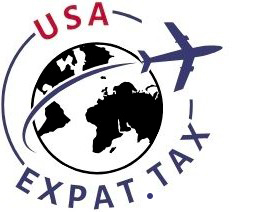If you hold a U.S. green card but live outside the country, your U.S. tax responsibilities don’t end at the border.
Green card holders are considered U.S. tax residents, so you're required to file a federal tax return annually-even if all your income was earned abroad and you haven't visited the United States recently. That means reporting all your worldwide income, not just income earned within the U.S.
But there are effective tools to counter double taxation:
Foreign Earned Income Exclusion (FEIE): Permits you to exclude foreign earnings up to $120,000+ or self-employment income (2024).
Foreign Tax Credit (FTC): Credits U.S. tax against taxes paid to a foreign government.
You may be required to report foreign bank accounts as well if your combined balances are over $10,000 at any point during the year. That is through the FBAR (Foreign Bank Account Report), separate from your tax return. Other reports, like FATCA Form 8938, may be required if you have significant foreign assets.
The bottom line: A green card comes with tax strings. To stay in good standing with the IRS—and protect your immigration status—it's crucial to file correctly and on time. If in doubt, seek the advice of a tax professional who's knowledgeable about expat and cross-border tax issues.

